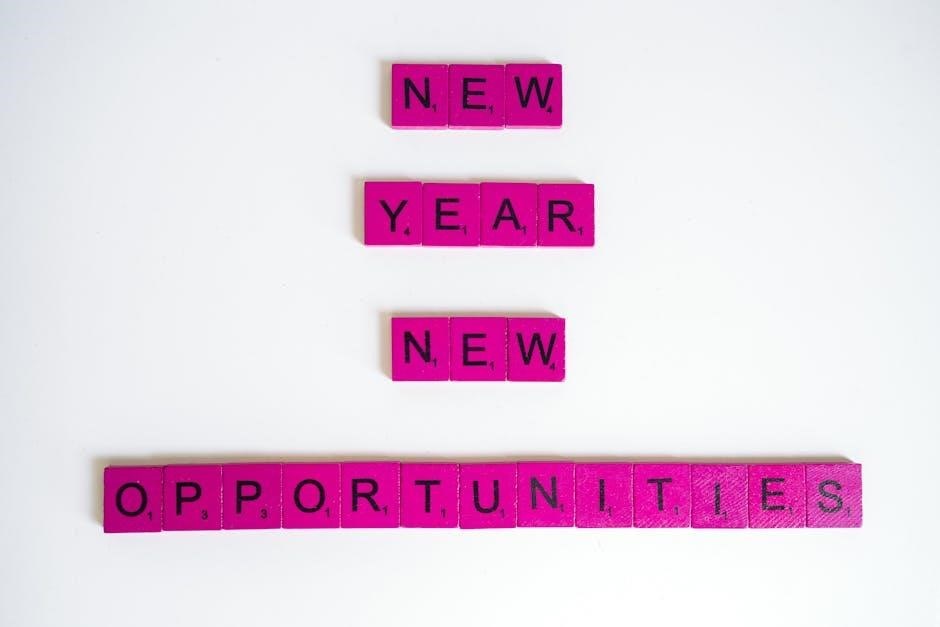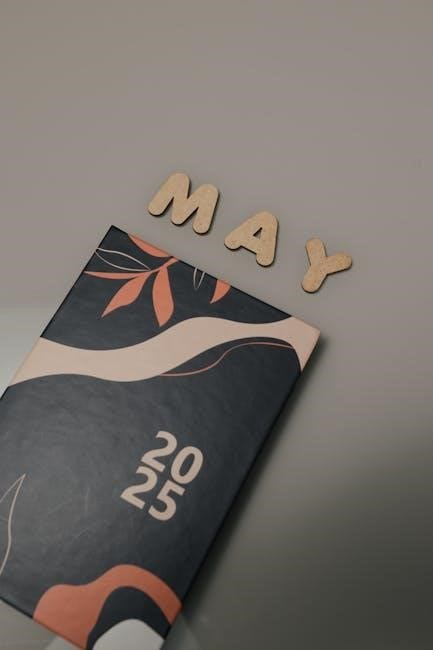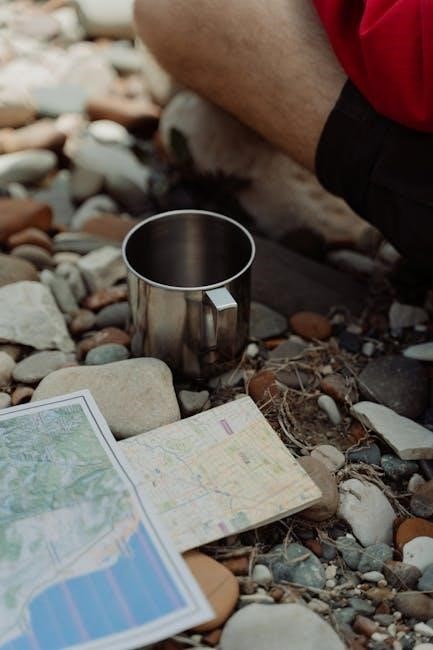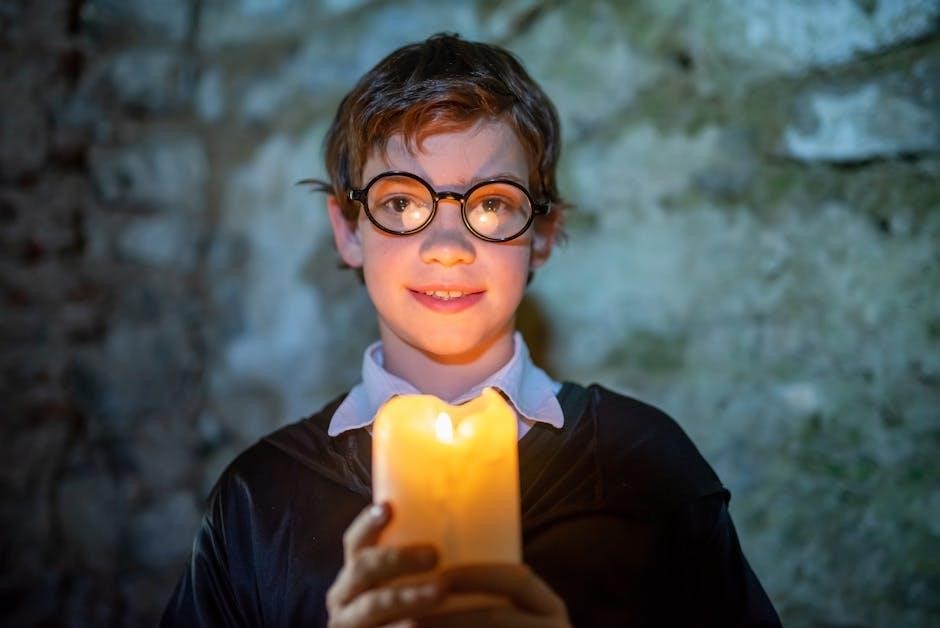Crossword puzzles are engaging word games that challenge solvers to fill a grid with words, solving clues that define each entry. They enhance vocabulary, logic, and problem-solving skills, making them a popular intellectual activity worldwide.
What Are Crossword Puzzles?
Crossword puzzles are word games where players fill a grid with words or phrases. Each cell in the grid corresponds to a clue, which can be a definition, synonym, or riddle. Crosswords are typically structured with black and white squares, separating words into horizontal (across) and vertical (down) entries; They are widely published in newspapers, magazines, and online platforms, offering entertainment and intellectual challenges. Solving crosswords enhances vocabulary, memory, and problem-solving skills, making them a beloved pastime for people of all ages. Popular crosswords include those from The New York Times and The LA Times.
Why Crossword Puzzles Are Popular
Crossword puzzles are beloved for their intellectual stimulation and entertainment value. They challenge the mind, improving vocabulary, memory, and problem-solving skills. Players enjoy the satisfaction of uncovering hidden words and completing the grid. Crosswords are accessible to all skill levels, from casual solvers to experts. They also foster a sense of community, as enthusiasts often share tips and solutions. The thrill of solving clues and the relaxation it provides make crosswords a timeless and popular pastime, appealing to people of all ages and backgrounds.
How to Approach Crossword Clues
Approaching crossword clues effectively requires a mix of logic and creativity. Start by carefully reading the clue to identify key words or phrases that hint at the answer; Consider synonyms, anagrams, and common letter patterns. Look for clues with shorter word lengths, as these are often easier to solve first. Use crossword solver tools or dictionaries to verify potential answers. Pay attention to overlapping letters between clues to narrow down possibilities. Practice active thinking and remain patient, as some clues may require time to unravel. This methodical approach enhances both efficiency and enjoyment while solving crosswords.

Understanding the Clue: “Plan or Guide for Future Actions”
This clue hints at a word describing a structured plan or guide for organizing and directing future actions, often used in strategic contexts to achieve goals.
Breaking Down the Clue
“Plan or guide for future actions” suggests a word that embodies a structured approach to achieving objectives. It implies a deliberate framework, often used in strategic planning. This clue is commonly associated with terms like strategy or tactic, which are frequently used in crossword puzzles due to their versatility and relevance across various contexts. Analyzing the length and letter patterns can help narrow down potential answers, ensuring a more efficient solving process for crossword enthusiasts. This approach encourages critical thinking and effective problem-solving skills.
Synonyms for “Plan” or “Guide”
When solving the clue “plan or guide for future actions,” considering synonyms is essential. Words like strategy, tactic, blueprint, agenda, and approach often fit this description. These terms are frequently used in crossword puzzles due to their broad applicability. For example, strategy is a common answer, as it directly relates to planning and guiding actions. By exploring these synonyms, solvers can identify the most likely word that matches the crossword’s length and letter patterns, leading to a successful solution. This method enhances both vocabulary and problem-solving skills.
Relevance of “Future Actions” in Crossword Clues
The phrase “future actions” is a common element in crossword clues, often hinting at words like strategy, plan, or tactic. This emphasis on futurity suggests a forward-thinking approach, making solvers consider terms related to planning and execution. Crossword constructors frequently use this phrasing to guide solvers toward answers that imply intent or preparation for upcoming events. By focusing on “future actions,” clues help narrow down possible answers, making the solving process more systematic and effective. This relevance enhances the puzzle’s challenge and intellectual appeal.

Common Crossword Strategies
Start with short answers, use word patterns, and eliminate unlikely options. Focus on common letters and intersecting clues to deduce answers systematically and efficiently in crosswords.
Using Word Length and Patterns
Identifying word length and patterns is crucial for solving crosswords. For “plan or guide for future actions,” solvers often look for 6-8 letter words. Patterns like “TACTIC” or “STRATEGY” match common clues. Start by filling shorter words and use overlapping letters to deduce longer answers. Pay attention to vowel placement and common prefixes/suffixes. Eliminate options that don’t fit the grid or clue context. This systematic approach helps narrow down possibilities and increases solving efficiency, especially for tricky clues like “strategy” or “plan.”
Eliminating Unlikely Options
Eliminating unlikely options is a key strategy in solving crossword clues. For “plan or guide for future actions,” solvers can narrow down possibilities by considering word length and letter patterns. If the clue requires a 6-letter word, options like “TACTIC” or “PLANES” fit well. By focusing on common crossword terms and avoiding words that don’t align with the clue’s meaning, solvers can quickly discard irrelevant answers. This method saves time and reduces errors, helping to identify the most plausible solution efficiently.
Looking for Common Letters in Crosswords
Identifying common letters in crosswords can significantly aid in solving clues like “plan or guide for future actions.” Letters such as ‘T’, ‘A’, and ‘C’ frequently appear in strategy-related words. By analyzing overlapping clues and focusing on these high-probability letters, solvers can fill in blanks more efficiently. Additionally, recognizing common letter combinations like “TACT” or “PLAN” helps narrow down potential answers, making the puzzle-solving process both quicker and more effective. This technique is especially useful when dealing with ambiguous or complex clues.

Popular Crossword Solver Tools
Online crossword solvers like CrosswordSolver.com and CrosswordClues.com provide instant answers and patterns, aiding solvers in overcoming difficult clues efficiently. Mobile apps enhance this convenience.
Online Crossword Solvers
Online crossword solvers are powerful tools that help users find answers by inputting clues and word lengths. Websites like CrosswordSolver.com and CrosswordClues.com offer extensive databases of crossword clues and solutions. These platforms allow users to search for answers by entering the clue or partial letters, making solving puzzles faster and more efficient. They often include features like sorting by word length and filtering by complexity, ensuring users can find the most relevant answers quickly. These tools are invaluable for crossword enthusiasts, providing instant solutions and insights into tricky clues.

Mobile Apps for Crossword Enthusiasts
Mobile apps like Crossword Solver and Anagrammer offer on-the-go solutions for crossword enthusiasts. These apps provide instant access to crossword clues, anagram generators, and word lists, helping users solve puzzles efficiently. Many apps support both classic and cryptic crosswords, catering to diverse skill levels. They often include features like offline access, daily puzzles, and progress tracking, enhancing the user experience. These apps are designed to be user-friendly, ensuring that crossword lovers can enjoy their hobby anytime, anywhere, with helpful tools at their fingertips.
How to Use Crossword Solver Websites
To use crossword solver websites, enter the clue and its length for quick solutions. These tools search extensive databases to find matching words, often listing multiple possibilities. Many sites, like CrosswordSolver.com, allow filtering by word length and pattern, making it easier to narrow down answers. They also provide synonyms and definitions, helping solvers understand the context. CrosswordClues.com and similar platforms offer advanced features, such as anagram generators and crossword archives, to assist with tricky clues. These resources are invaluable for both beginners and experienced solvers, offering fast and accurate solutions.

Analysis of the Clue “Strategy”
The crossword clue “Strategy” often refers to a plan or guide for future actions. Online solvers like CrosswordSolver.com and CrosswordClues.com provide quick solutions, with “TACTIC” being a common answer.
Definition of Strategy in Crosswords
In crosswords, “strategy” typically refers to a plan or guide for future actions, often implying a deliberate approach to achieve goals. It can also denote tactics or methods, making it a versatile clue. Crossword solvers frequently encounter this term, with “tactic” being a common 6-letter solution. Online tools like CrosswordSolver.com highlight such answers, aiding solvers in efficiently completing puzzles. The term’s broad application ensures its popularity in both quick and cryptic crosswords, catering to various solving styles and preferences.
Examples of “Strategy” in Crossword Puzzles
In crosswords, “strategy” often appears as a clue, seeking a word that denotes a plan or method. Common answers include “tactic,” “plan,” or “scheme,” each fitting varying grid lengths. For instance, in a 6-letter grid, “tactic” is a frequent solution, while longer grids might use “strategic.” Crossword puzzles from sources like The LA Times or Mirror Quick often feature this clue, with “tactic” being a popular answer. These examples help solvers recognize patterns, making “strategy” a familiar and solvable clue in many puzzles.
Why “Strategy” Is a Common Crossword Clue
“Strategy” is a common crossword clue due to its broad applicability and versatility. It refers to a plan or method for achieving goals, making it relevant in various contexts like business, sports, and daily life. Crossword constructors often use it because it has multiple synonyms, such as “tactic,” “plan,” and “scheme,” which fit different grid lengths and puzzle themes. Its popularity is further boosted by its frequent appearance in crosswords from sources like The LA Times and Mirror Quick, as well as its adaptability to both straightforward and cryptic clues.

Possible Answers to “Plan or Guide for Future Actions”
The clue “Plan or Guide for Future Actions” often refers to a strategy. Common crossword answers include TACTIC, PLAN, and SCHEME, all fitting the context of organized future actions.
6-Letter Answers
For the clue “Plan or Guide for Future Actions,” a common 6-letter answer is TACTIC. This word refers to a planned method or strategy for achieving a specific goal. Other possible 6-letter solutions might include SCHEME or METHOD, depending on the crossword’s context. TACTIC is the most frequently used answer in crosswords due to its direct association with strategic planning. Always verify by checking the letters and the puzzle’s theme to ensure accuracy.
7-Letter Answers
For the clue “Plan or Guide for Future Actions,” a 7-letter answer could be STRATEGY. This term is widely used in crosswords and refers to a detailed plan or set of methods for achieving long-term goals. Other possible 7-letter solutions might include BLUEPRINT or PLANFORM, though these are less common. STRATEGY is the most fitting answer due to its relevance to both personal and organizational planning. Always cross-reference the letters and the puzzle’s context to confirm the correct solution.
8-Letter Answers
For the clue “Plan or Guide for Future Actions,” an 8-letter answer could be OUTLINES or GUIDANCE. These words fit the context of planning and directing future steps. OUTLINES refers to a general plan or sketch, while GUIDANCE implies direction or advice for actions. Both terms align with the idea of strategizing for the future. Crossword puzzles often use these terms due to their relevance and letter length. Ensure the letters match the grid to confirm the correct solution.
Top Solutions for the Clue “Strategy”
TACTIC is a common answer for “Strategy,” fitting as a 6-letter solution. Other possibilities include PLANNING or GUIDANCE, depending on the crossword’s letter requirements and grid match.
TACTIC as a Likely Answer
TACTIC is a prevalent solution for crossword clues related to “strategy.” It succinctly encapsulates a plan or guide for future actions, making it a fitting choice for many puzzles. Crossword solvers often find TACTIC to be a reliable answer due to its broad applicability and common usage in various contexts. This 6-letter word aligns well with typical crossword grid structures, enhancing its likelihood of being the correct solution. Its popularity across different puzzles underscores its effectiveness in representing strategic planning concisely and clearly.
Other Possible Solutions
Beyond TACTIC, other potential answers for the crossword clue “plan or guide for future actions” include PLAN, BLUEPRINT, or APPROACH. These words vary in length, offering flexibility for different grid sizes. For instance, PLAN is concise at 4 letters, while BLUEPRINT spans 9 letters, providing options for diverse puzzle designs. The context of the clue often narrows down the best fit, making it essential to consider the specific wording and letter count constraints. These alternatives ensure solvers have multiple pathways to uncover the correct answer effectively;
How to Verify the Correct Answer
Verifying the correct answer involves cross-checking letters with intersecting words in the grid. Ensure the solution fits the clue’s definition of a “plan or guide for future actions.” Using online tools or crossword solvers can confirm accuracy. Check if the answer aligns with common crossword patterns and word lists. Double-checking each letter against the puzzle’s constraints helps eliminate errors, ensuring the chosen word is the best fit. This methodical approach guarantees confidence in the solution’s correctness and completeness.

Advanced Crossword Solving Techniques
Advanced solvers use anagramming, wordplay, and pattern recognition to crack tough clues like “plan or guide for future actions,” often uncovering hidden connections between words.
Using Anagrams
Anagrams are a powerful tool in crossword solving, helping to uncover hidden word patterns. By rearranging letters from clues like “plan or guide for future actions,” solvers can identify potential answers. For example, an anagram of “strategy” might reveal “tactic,” a common crossword answer. This technique is especially useful when combined with word length and pattern analysis. Skilled solvers often use anagram generators or mental exercises to find connections between letters, making it easier to crack even the toughest clues. This method enhances problem-solving skills and speeds up the solving process significantly.
Understanding Cryptic Clues
Cryptic clues are a challenging yet intriguing part of crossword puzzles, requiring solvers to decode hidden meanings. These clues often combine wordplay, puns, and double definitions. For example, “plan or guide for future actions” might hint at “strategy,” but a cryptic clue could present it as “tactic” through an anagram or indirect reference. Mastering cryptic clues involves recognizing patterns, such as splitting words or identifying synonyms in clever ways. Practice and patience are key to deciphering these cleverly crafted puzzles, making them a rewarding challenge for seasoned solvers.
Thinking Outside the Box
Solving crossword clues often requires creative thinking and unconventional approaches. For the clue “plan or guide for future actions,” solvers might consider less obvious synonyms or wordplay. Anagrams, such as rearranging letters, can reveal hidden answers like “tactic” or “method.” Online tools and crossword solvers can also provide insights, suggesting unexpected solutions. Thinking outside the box encourages solvers to explore beyond the obvious, making the puzzle more engaging and challenging. This strategy helps in uncovering cleverly disguised answers and enhances problem-solving skills.

Common Mistakes in Solving Crossword Clues
One of the most frequent errors is overcomplicating the clue, leading to incorrect guesses. Ignoring letter patterns and not double-checking answers also hinder progress, often resulting in mistakes that could have been avoided with a more meticulous approach.
Overcomplicating the Clue
Solvers often overcomplicate clues by overthinking definitions or assuming excessive complexity. This mistake leads to incorrect guesses and wasted time. For “plan or guide for future actions,” simplifying the interpretation can yield the correct answer, such as “strategy” or “tactic.” Starting with simpler clues and using word patterns helps avoid this common pitfall, ensuring a more efficient and enjoyable solving process. Always consider straightforward definitions before diving into intricate interpretations to maintain clarity and focus.
Ignoring Letter Patterns
Ignoring letter patterns is a common mistake that can hinder crossword progress. For the clue “plan or guide for future actions,” recognizing patterns like “TACTIC” or “STRATEGY” is crucial. These words often repeat in crosswords, and their letter sequences can provide immediate clues. Overlooking these patterns may lead to incorrect guesses or prolonged confusion. Paying attention to recurring letters and word structures can significantly simplify the solving process and help identify the correct answer more efficiently, especially for frequently used terms in crossword puzzles.
Not Double-Checking Answers
Not double-checking answers is a common oversight that can lead to incorrect solutions. Crossword puzzles require precision, and even a small typo or misinterpretation can throw off the entire grid. It’s essential to review each entry, especially for clues like “plan or guide for future actions,” where answers like “STRATEGY” or “TACTIC” are common but easily misentered. Taking a moment to verify each answer ensures accuracy and prevents confusion later in the puzzle. This simple step can save time and frustration, making the solving process more enjoyable and efficient.
Evolution of Crossword Clues
Crossword clues have evolved to become more diverse and complex, adapting to modern language and cultural shifts. Today, clues like “plan or guide for future actions” reflect contemporary themes, offering solvers fresh challenges while maintaining the classic puzzle appeal.
Traditional vs. Modern Crosswords
Traditional crosswords often featured straightforward clues, while modern ones incorporate diverse clue types, including quick and cryptic clues. Modern crosswords frequently include clues like “plan or guide for future actions,” which may have multiple solutions such as TACTIC, PLAN, or SCHEME. The rise of online tools and mobile apps has made solving easier, with resources like Crossword Solver and Anagrammer aiding solvers. Today, crosswords are more accessible, with clues reflecting contemporary language and themes, appealing to a broader audience while maintaining the classic puzzle charm.
How Technology Changed Crossword Solving
Technology has revolutionized crossword solving by providing instant access to clues, answers, and puzzle databases. Online tools like Crossword Solver and Anagrammer offer quick solutions, while mobile apps enable solving on the go. The internet has democratized crossword access, allowing solvers to find answers and patterns effortlessly. Additionally, AI-driven tools now assist in generating puzzles and clues, making the process more efficient. These advancements have transformed crosswords into a more accessible and dynamic activity, appealing to both casual and dedicated enthusiasts.
The Future of Crossword Puzzles
The future of crosswords lies in integration with advanced technology, offering dynamic and personalized puzzles. AI will likely generate puzzles tailored to solvers’ skill levels, while virtual reality (VR) could create immersive solving experiences. Crosswords may also evolve to incorporate real-time feedback and interactive elements, enhancing engagement. Additionally, educational crosswords could become more prevalent, teaching new languages or subjects through clues. The rise of mobile apps and online platforms ensures that crosswords will remain accessible and relevant, appealing to both traditional and modern audiences.
Crossword puzzles remain a timeless and intellectually stimulating activity, offering both fun and cognitive benefits. Solving clues like “plan or guide for future actions” enhances problem-solving skills and vocabulary.
Final Tips for Solving Crossword Clues
To solve crossword clues effectively, stay calm and think methodically. Start by analyzing the clue’s wording and identifying key terms. Use word lengths and patterns to narrow down possibilities. Employ tools like crossword solvers or anagram generators for tricky clues. Pay attention to common letter overlaps and vowel placements. Double-check your answers to ensure they fit logically within the grid. Practice regularly to improve your vocabulary and pattern recognition. Most importantly, stay patient and persistent—every solved clue brings you closer to completing the puzzle!

Why Crosswords Remain a Popular Puzzle Type
Crossword puzzles remain popular due to their unique blend of mental stimulation and relaxation. They offer a challenge that exercises vocabulary and logic, appealing to those seeking cognitive engagement. The sense of accomplishment upon completion and the ability to work at one’s own pace add to their allure. Crosswords also foster social connections, as many enjoy solving them with others. Their accessibility across various formats—print, online, and mobile apps—ensures they fit into modern lifestyles. Additionally, crosswords provide a nostalgic activity for many, while their evolution into themed and interactive versions keeps them fresh and engaging.
Encouragement to Keep Solving Crosswords
Answer:
The crossword clue “Plan or guide for future actions” is best answered with the word strategy. This term effectively encapsulates both planning and guidance for future endeavors, making it a fitting and common solution in crossword puzzles.

